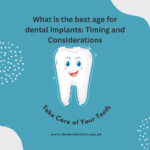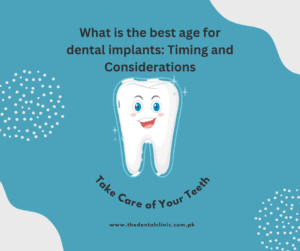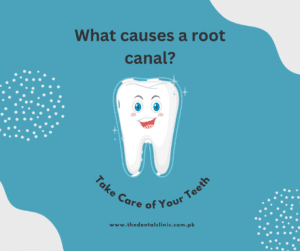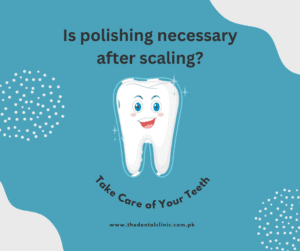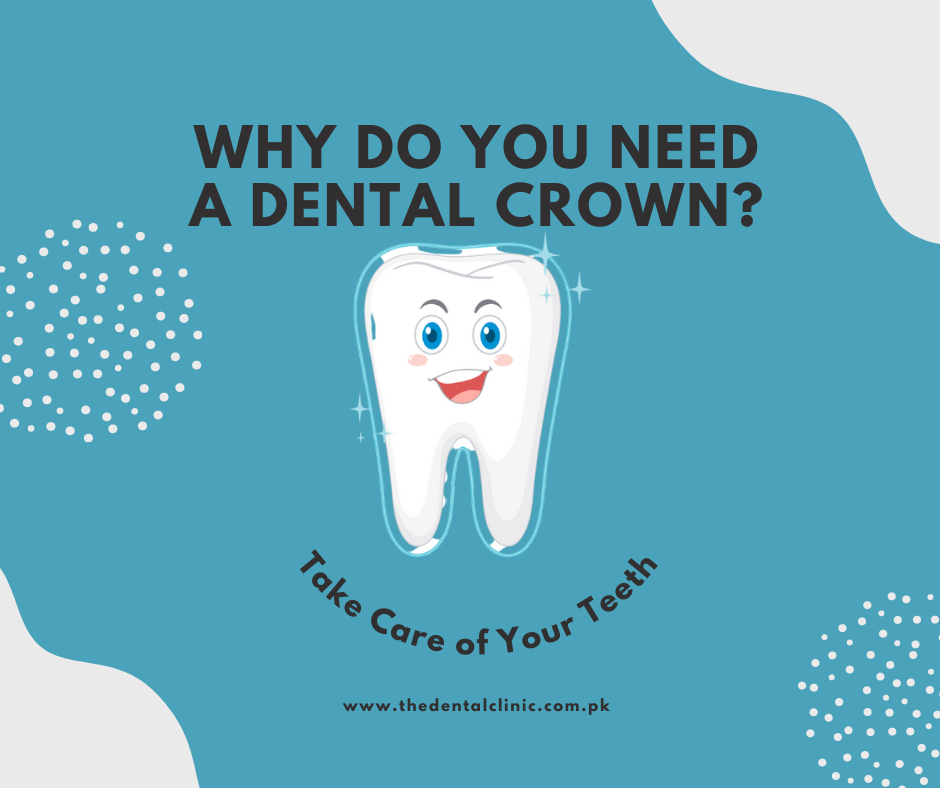
When Do You Need a Dental Crown? Top Reasons and Considerations
A dental crown is a cap for a damaged tooth, which is made using a variety of materials. For example, metal and porcelain.
A crown on the posterior teeth rarely shows except when a person is yawning. Moreover, you might also have crowns on your front teeth that are specifically made to match your other teeth.
The factors that need to be taken into consideration when choosing a crown are cost, durability, and strength. A natural appearance that does not make your smile unappealing is the priority for most people. Patients can discuss their options about crowns treatment with the dentist at The Dental Clinic and opt for what serves their needs.
What is a dental crown?
A dental crown is a tooth-shaped cap inserted over a tooth. It covers the tooth, restores its shape, size, and strength, and improves its appearance. When the crown is cemented onto the tooth, it encases the entire visible portion of the tooth lying above and at the gum line.
Types of Dental Crown
Permanent crowns are made using stainless steel and metals, which include gold or other alloys, porcelain fused metal, all resin, and ceramic.
Stainless Steel
These crowns are prefabricated and are used temporarily on permanent teeth. The crown helps protect the tooth or filling while the permanent crown is being made in the labs using another material. Moreover, a stainless-steel crown is used over a primary tooth in children. The crown covers the whole tooth and prevents further decay. When the deciduous tooth falls out, the crown falls with it naturally, making room for the permanent tooth. Generally, stainless steel crowns are used in children because it saves them from multiple dental visits and is cost-effective compared to custom crowns and prophylactic dental care required for the protection of teeth without crowns.
Metals
The metals used in crowns consist of high gold, platinum, or base metal alloy content. Furthermore, metal crowns can last longer in terms of wear and tear because they can withstand chewing and biting forces. In addition, metal crowns do not even break and chip. However, one of the main drawbacks of metal crowns is the high price of gold and metal crowns are better for molars because they remain out of sight.
Also Read: Is It Safe for a 3-Year-Old to Visit the Dentist?
Porcelain Fused to Metal (PFM)
PFM crowns are matched with the colour of your adjacent teeth and opposing teeth wear off more with this crown compared to metal or resin. Moreover, the porcelain portion of crowns can also break off and chip. However, with normal teeth, porcelain fused to metal crowns looks the most natural. But one problem PFM crowns have is that the metal part may show, especially near the gum line if a person has receded. These crowns are a good choice for bridges where metal is needed for strength.
All Resin
Although all resin crowns are more expensive compared to other crown types, they wear down with time and are prone to fractures compared to PFM crowns.
All Ceramic or All Porcelain
These crowns have a better colour match compared to other crown types and may be better for people with metal allergies. They are used for both posterior and anterior teeth.
Reasons for Getting a Dental Crown
A person may need a dental crown due to the following reasons
Cracked or Chipped Tooth
A cracked or chipped tooth can be restored easily by covering it with a crown fabricated to fit perfectly. The crown is created using a mould of the teeth so it can be bonded tightly to the tooth. The bite becomes even and close to proper speech and chewing.
Damaged or Decayed Tooth
If the cavity is very deep or wide or is broken off above the gum line, a crown re-establishes functionality and restores the bite. Getting a crown made and inserted as soon as possible is very important to prevent damage, decay, and infection.
After a Root Canal
A crown is put on root canal-treated teeth to make sure it’s sealed and to prevent reinfection of the teeth, strengthening the weakened teeth.
To Support Dental Implants
Lastly, a crown may be needed to support a dental implant. A dental implant replaces a tooth using a titanium post inserted into the jawbone and a crown is placed to fill gaps in the top and bottom arch of teeth.
Also Read: What are the Disadvantages of Aligners?
Benefits of a Dental Crown
Dental crowns give a solution to multiple dental problems and are beneficial in the following circumstances
- Provide support to teeth that have been damaged by decay.
- Protect worn-out teeth from further damage.
- Protecting the tooth after a root canal.
- Holds a broken or cracked tooth together.
- Covers a dental implant.
- It improves the appearance of the tooth by changing its shape and colour.
Dental crowns are great for the long term because of their durability and longevity, which is approximately 5-15 years. It adds to the satisfaction of a patient through the treatment.
The success rate of dental crowns is high with respect to other methods of dental restoration or no treatment options as well. Moreover, multiple scientific research papers also back the use of dental crowns.
Preparing for a Dental Crown Procedure
The procedure of dental crown placement may be scheduled for two appointments. Your dentist will examine your teeth first and then prepare the crown. An x-ray is also taken to examine the root and surrounding structures of your tooth.
Moreover, if the tooth is infected or decayed, a root canal procedure is done first and then the crown is inserted in the mouth. However, patients should know that these are all painless procedures because they are performed under anaesthesia. After the root canal, the dentist builds up the tooth before the crown preparation. The next step is taking an impression of the tooth. An impression or mould ensures that the crown fits properly and there is no high spot because that can cause problems and possibly pain in the future.
However, if the crown is porcelain, it is matched the colour of the tooth. The impression is then sent to a lab to create a crown. While the crown is being made in the lab, a temporary crown is inserted in the mouth. Furthermore, the procedure of the dental crown is continued during the second appointment. When the permanent crown is ready, the temporary crown is removed, and the permanent crown is put.
Caring for a Dental Crown
Sticky Hard Foods
Although crowns are strong and durable, they can be damaged just like permanent teeth. Hard candies, ice, and any hard foods can damage the crown by breaking or cracking it, which requires replacement. Chewy and sticky foods may also pose the same problems so all should be avoided. Moreover, the porcelain used to make crowns is staining-resistant, hence it cannot be whitened like permanent teeth. So, if you want to get professional bleaching done, make sure it is before the crown is placed.
Brushing and Flossing
Your crown may be artificial but the supporting tooth under it requires proper oral care to remain healthy. Moreover, although the crown extends to the entire tooth surface, you need to brush your teeth properly to remove the sticky plaque and to keep the crown looking its best.
Get Rid of Bad Oral Habits
Don’t bite on your nails or any other hard objects, for example, pencils and ice. If you grind your teeth because of anxiety or any other triggers or if you open bottle caps with your teeth, stop right away. However, although these habits are likely to break your dental crowns and chip your natural teeth. Moreover, the objects can splinter between your gums or damage them.
Night Guard
Many people grind their teeth when they are sleeping and, in most cases, they are not even aware of it. Moreover, people may not be aware that they are habitual of grinding and clenching their teeth when they’re sleeping, and it isn’t a very serious problem either. But with time, it can take a toll on the teeth. The pressure because of grinding and clenching can increase the risk of the crown breaking. The Dental Clinic can tell you if your grinding habit is by examining your oral cavity and creating a personal night guard accordingly.
Visit the Dentist Regularly
Routine check-ups and cleaning every six months are necessary for the gums to stay healthy and to support tooth health as well.
Potential Risks and Complications
The dental implant is a foundation where the crown and bridge are secured. And although most dental implants do not pose any problems, if they do occur, they happen right after the procedure. Hence, being aware of the potential dental implant complications is necessary.
- Intense pain that does not go away and should immediately be checked.
- Implant movement is not a good thing, and the implant should not be loose either. If this happens, it should be looked at immediately.
- Swelling after an implant is normal but if it gets worse or returns, your implant may be infected.
- Consistent bleeding and yellow or white discharge after the initial healing period can be a sign of abscess and infection.
- High temperature may also be one of the signs of infection.
Conclusion
A dental crown typically lasts between five to fifteen years, depending on wear and tear, as well as a person’s oral hygiene practices and habits. For the best results, it’s recommended that patients with crowns follow good oral hygiene practices, particularly around the crown area where the gum and tooth meet, to prevent gum disease and decay.
Additionally, it’s important to avoid biting hard objects that can cause the porcelain to crack. For top-quality crown treatments in Karachi, look no further than Dr. Saqib Minhas, the best dentist in the city for this procedure.




